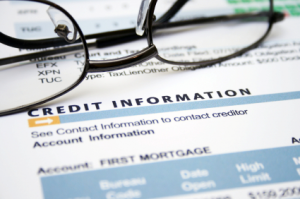Saving Money This Spring
 There’s never a wrong time to reassess your spending habits, make some changes, and start saving money. With summer quickly approaching, there’s a good chance that you have your eyes set on some costly expenditures—perhaps a new summer wardrobe, a bike to cruise around the city, or the beach vacation you’ve always dreamed of. Whatever it is, making a commitment to saving money this spring will help you with both your long-term and short-term financial goals.
There’s never a wrong time to reassess your spending habits, make some changes, and start saving money. With summer quickly approaching, there’s a good chance that you have your eyes set on some costly expenditures—perhaps a new summer wardrobe, a bike to cruise around the city, or the beach vacation you’ve always dreamed of. Whatever it is, making a commitment to saving money this spring will help you with both your long-term and short-term financial goals.
Establish a Budget
You’ve heard it before, and you’ll hear it again: establishing a budget (and sticking to it!) is the most important part of saving money. Break your budget down into fixed costs, such as rent, car or loan payments, and utilities, and fluctuating costs, such as the money you spend on going out each month. Plan to save 10% of your income each month. Make adjustments to your budget where it’s necessary, and stick to your goals. If you need help, there are a lot of great financial apps out there that can help you set a budget and track spending.
Cut Down on Utility Costs
Now that you’ve set your budget and you know just how much money you should be saving each month, start reeling in those savings by cutting down your monthly utility costs. Replace your light bulbs with energy-efficient bulbs, install water-saving faucets for your sinks and showers, hang blinds or shades to keep your home cool without the AC, and clean out your AC’s filter, your dishwasher, your light bulbs, and your refrigerator coils. If you can, consider replacing old appliances or HVAC systems with new, energy-efficient models. Doing so will save you money on monthly bills, and you’ll even get a tax credit for going green!
Change Your Spending Habits
Changing your spending habits is hard, and takes a conscious effort. However, making a few simple changes is possible, and can save you a lot of money. For example, try packing your lunch each day for work instead of going out. Packing a lunch can save you hundreds of dollars per year, and is a lot healthier for you, too. If you spend a lot of money on coffee each day, try reducing coffee expenditures to a couple times a week and make your coffee at home or use the office’s coffee machine instead. If you’re paying for a gym membership that you don’t often use, cancel it: walk or jog outside, ride your bike, or buy a yoga-mat that you can use for exercising at home. If you love to go out to eat with friends, suggest at-home dinner nights instead, where each person rotates as host. Look your biggest expenditure in the face, and make a commitment to tackle it.
Make Some Extra Cash
If you are strapped for cash and have already cut out all unnecessary spending possible, it might be time to consider getting a part-time job. If you’re already working 40 hours a week, this can be difficult, but it’s still possible! Consider taking up part-time work that you really like, such as dog walking, gardening, tutoring, or blogging. All of the jobs are flexible, fun, and most allow you to set your own schedule. Best of all, they’ll help pad your wallet each week!
This article was written by Richard Craft, an MBA student who hopes to help you with your personal finances. He writes this on behalf of Amigo Energy, your number one choice when looking for cheaper electricity. Check out their website at www.amigoenergy.com for more information today and see how they can help you!

Category: Financial Planning, Saving Money






Everyone has those obligations they just can’t always escape. Fuel, electricity, mortgages, car loans, student loans, etc. Hopefully by the time you are ready to retire, ones like the student loans and mortgages will be done with, but some things linger. Learn more about handling such obligations at http://www.mutualfundstore.com/financial-obligations-debt. Plan how much you must spend and how much that leaves you for discretionary spending. Do your best to stick within your budget.